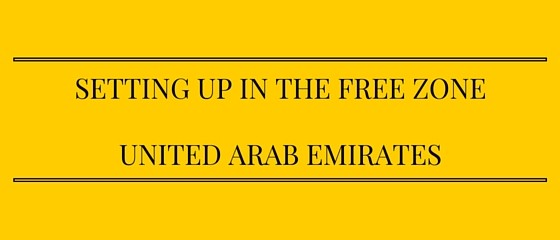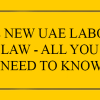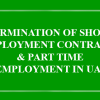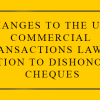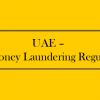The UAE (United Arab Emirates) is one of the top investor friendly jurisdictions in the world and always ranks in top 15 in best destinations for direct foreign investment.
The Free Zones contribute significant non-oil related revenue to the UAE, more specifically to Dubai.
So what is a Free Zone?
It is a specifically delineated duty-free enclave and is considered a foreign territory for the purposes of trade operations, duties and tariffs, the aim of which is to attract foreign direct investments.
Put differently, a Free Zone is a geographical region that has economic laws different from a country’s typical economic laws and that is designed to export goods and services and provide employment opportunities that is exempt from certain laws regarding taxes, quotas, FDI-restrictions and labor laws in order to competitively price goods and services made and produced there.
In the UAE, based on their operational structure, the Free Zone is classified into,
seaport free zones such as Jebel Ali Free Zone,
airport free zone such as Dubai Airport Free Zone, and
mainland free zone such as TECOM.
How many free zones in the UAE?
There are a large number of Free Zones in UAE and most of them are in Dubai; each with its own industry focus and separate regulatory environment.
Many restrictions imposed by federal and local laws are exempted to the businesses which operates in the free zones.
Notably, there are around 40 free zones in UAE; most of which is in Dubai.
Some of the prominent free zones in Dubai are,
- Jebel Ali Free Zone
- Dubai Airport Free Zone
- Dubai Silicon Oasis
- Dubai International Financial Centre
- Dubai Technology and Media Free Zone (TECOM)
- Dubai Multi Commodities Centre (DMCC)
- Dubai Health Care City
- Dubai World Central (DWC)
- Dubai Design District
Besides, there are also few free zones in Sharjah, (which is in close proximity to Dubai) such as Sharjah Airport International Free Zone, which may be very affordable and therefore attractive to the investors.
An independent free zone authority regulates each free zone and is responsible for issuing operating licenses and assisting companies with establishing their business in the free zones.
The type of license that will be granted by the relevant free zone authority depends upon the of industry serviced by the free zone.
The licences include trade licences, service licences, industrial licences, retail licences, warehousing licences, etc.
Consideration while choosing the free zone
Investor’s decision to choose the free zone to operate from is primarily driven by the following:
- The type of business activity that the investor intends to undertake;
- The suitability of geographic location;
- commercial considerations, including the cost and availability of office space in the free zone including the availability of flexi-desk options;
- the cost and speed of incorporating an entity in the free zone; and
- the legal requirements for operating in the free zone:
Benefits of operating in the free zones
The major advantages in operating in a free zone are:
- One Hundred per cent (100%) foreign ownership of the business
- One Hundred per cent (100%) import and export tax exemptions
- One Hundred per cent (100%) repatriation of capital and profits
- No corporate and personal taxes on income
- English language documentation
- Sophisticated infrastructure
While there are many benefits in operating in the Free-Zone, the investors should also consider what is their target market. As at least theoretically, under the UAE Laws, the company established in the Free-Zone are restricted to do business outside the Free-Zone.
This restriction is easy to enforce for trading and manufacturing activity but very difficult when the company is only providing services.
There are recent reports in the media that UAE is considering imposing value added tax (VAT) in the UAE. The reports suggest that VAT might be imposed by 2018.
Taxes are becoming increasing reality in view of falling oil prices. It is not clear how imposition of taxes will affect the businesses in the free zones as there is very less guidance available from the authorities on this front.
Type of Entity available to set-up in the Free-Zone
The type of entity available to set-up differs in each free-zone. However very broadly, the following are the common types of entities that may be set-up.
Free Zone Company (FZCO or FZ-LLC)
A FZCO or FZ-LLC has an independent liability from its shareholders and has a separate legal personality.
It requires at least 2 shareholders. Different free zone has different capital requirements for setting up this entity. The share capital is not required to be paid.
Free Zone Establishment (FZE)
An FZE is largely similar to the FZCO or FZ-LLC, however can be set-up by only one shareholder.
A branch office of a foreign company
A branch office is not considered to be a separate legal entity from its parent. The liabilities of a branch office extend to the parent company establishing the branch office.
Offshore Companies
Jebel Ali Free Zone and Ras Al Khaimah Free Zone also allows offshore companies.
The offshore company can be set-up by one or more shareholders. There is no need to rent office space and no residence visa is granted to the offshore company.
The company can have the bank account with the UAE banks. Its affairs with the authority are conducted through its registered agent which is compulsory to appoint.
A registered agent is usually a law firm or an accounting firm registered in the UAE and authorized by the respective free zone authority to act as their registered agent.
There is no minimum capital requirement and is very economical to set-up.
An offshore company cannot do any business with individuals and companies based in the UAE.
Finally, investors considering to set-up in the UAE are advised to discuss their specific requirements thoroughly with a lawyer practicing in UAE or UAE law firm to ensure that the proper structure can be advised, the relevant license can be obtained and impact of UAE laws can be analyzed.
This discussion shall be one at the outset so that suitable free zone can be advised after studying the requirement as this is dependent on a number of legal, licensing, and activity specific considerations, and the level and location of the business that is likely to be transacted in the region.
The above is only a brief summary of the key considerations and specific advised should be obtained.

